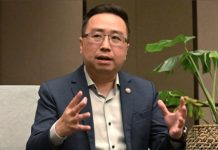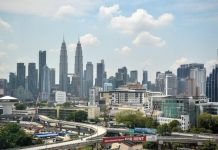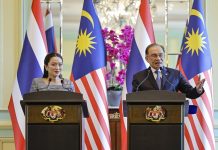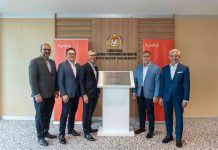In the face of Singapore’s historic low total fertility rate (TFR) at 1.05 in 2022, the nation has turned its attention to immigration as a pivotal force in fostering integration and contribution.
Minister Indranee Rajah, in the 2023 Committee of Supply Debate, emphasised the significance of immigrants, revealing notable figures: 23,100 new citizenships and 34,500 new Permanent Residencies (PRs), surpassing pre-COVID levels.
Simultaneously, the global migration of high-net-worth individuals has surged, with Singapore emerging as a prominent destination.
According to Henley & Partners, the city-state secured the 7th position in the top 10 list for applications based on address country in 2023, highlighting its significance in the realm of investment migration.
The data also reveals a growing trend, as around 120,000 millionaires relocated globally in 2023, marking a significant increase from 84,000 in 2022, with projections anticipating a rise to 128,000 in 2024.
Elevating its global standing, Singapore now shares the top spot in the 2024 Henley Passport Index, alongside Japan, Spain, Germany, France, and Italy, heightening the allure of Singaporean citizenship. People are drawn to Singapore for these reasons:
- Quality of Life: Singapore consistently ranks high in global quality of life indices. The city offers excellent healthcare, education, public services, and a high standard of living. Its efficient public transportation and well-maintained infrastructure contribute to a comfortable lifestyle.
- Economic Opportunities: Singapore boasts a robust and dynamic economy, providing numerous opportunities for employment, entrepreneurship, and career advancement. The city-state’s reputation for transparency, strong rule of law, and robust intellectual property protection further enhances its appeal to entrepreneurs. Additionally, it’s noteworthy that Startup Genome ranked Singapore third in its Global Startup Ecosystem Index.
- Political Stability: Singapore is known for its political stability and efficient governance. This stability creates a secure environment, making it an appealing destination for individuals seeking a reliable and peaceful place to live.
- Safety and Cleanliness: Singapore is known for its low crime rates and stringent laws, contributing to a safe environment. The city’s cleanliness and green spaces also enhance its appeal as a desirable place to live.
- Global Connectivity: Singapore’s strategic location makes it a gateway to Asia and beyond. The Changi Airport, one of the best in the world, facilitates easy international travel, attracting global professionals and businesses.
- Tax Incentives: Singapore provides competitive tax benefits for both businesses and individuals. Paired with its pro-business environment, this makes the city-state a highly attractive destination for entrepreneurs and investors.
- Visa and Residency Options: Singapore provides various visa and residency options, including the Permanent Residency (PR) scheme, making it feasible for expatriates and skilled professionals to establish long-term roots in the country.
As reported by the Straits Times, an upgraded free trade pact is poised to usher in a mutual visa-free regime for Singapore and China.
This anticipated visa-free arrangement, set to take effect in early 2024, will eliminate the need for visas for Singaporeans and Chinese nationals visiting each other’s countries for a period of up to 30 days.
Notably, there are currently over 40,000 students from China studying in Singapore, illustrating the growing engagement between the two nations.
The introduction of a mutual visa-free regime adds another layer of attractiveness to Singapore for families, students, and individuals considering relocation.
Moreover, as reported by Lianhe Zaobao, policies like China’s “double reduction” and changes to the middle school entrance exam, now carrying a 50% chance of students being directed to vocational or technical schools instead of the previous 20%, have led to an increased interest among Chinese parents in sending their children to Singapore.
This development is anticipated to streamline travel between the two countries, fostering stronger cultural, educational, and economic ties and making Singapore an even more appealing destination for international visitors and residents alike.
Despite these advantages, Kay Cheong, founder and managing director of The Immigration People (TIP), emphasises the importance of considering associated obligations.
From National Service to limitations on CPF withdrawal and the prohibition of dual nationality, individuals must weigh the pros and cons of Singaporean citizenship carefully.
Kay, originally from Kuala Lumpur, shares her first-hand experience, having transitioned from a foreigner to Permanent Resident (PR) status and eventually acquiring Singapore citizenship.
She empathises with the disappointment of rejection, pointing out that the Immigration and Checkpoints Authority (ICA) does not disclose specific reasons for rejection, making it challenging for applicants to identify weaknesses.
Common factors leading to rejection include missing steps during the application process, incorrect documentation, omission of essential documents, and incorrectly filled-out forms.
Even seemingly error-free applications may face rejection if they lack a convincing case regarding financial stability and commitment records in Singapore.
For those experiencing positive changes, such as salary increments or job promotions, writing an appeal letter for reconsideration is advisable.
Conversely, individuals with no substantial changes in their profile are encouraged to patiently await the next opportunity or seek guidance from professionals at an immigration agency.
TIP, with over three decades of collective experience in immigration consultancy, offers services ranging from Permanent Residence (PR) applications to various schemes for foreign individuals, students, artistic talents, and global investors. Their expertise extends to:
- Singapore Permanent Residence (PR) Application:
a. Professional, Technical Personnel and Skilled Workers (PTS) Scheme: For foreign individuals on a work pass, extending to include spouses and children.
b. Sponsored Scheme: Allows Singapore Citizens or PRs to sponsor their family members for PR consideration.
c. Foreign Students Scheme (FSS): Enables foreign students studying in Singapore to apply for PR.
d. Foreign Artistic Talent (ForArts) Scheme: Targets internationally recognised art professionals.
e. Global Investor Programme (GIP): For eligible global entrepreneurs, business owners, and investors contributing to Singapore’s economy.
- Work Pass Applications (S Pass / Employment Pass): Expert guidance for S Pass, Employment Pass, Personalised Employment Pass, and Overseas Networks and Expertise Pass.
- Global Investor Program (GIP): Tailored for entrepreneurs seeking PR status through business initiation or investments, with assistance in the application process.
- Long-Term Visit Pass (LTVP), Dependant Pass (DP) Application: Assistance for those holding EP or S Pass to bring family members to Singapore.
- Business Relocation Services: Specialised support for business owners, entrepreneurs, innovators, and investors venturing into Singapore.
For individuals contemplating expert guidance, TIP provides a preliminary assessment of eligibility through the Singapore PR Points/Citizenship Self-Assessment Tool, accessible at: https://www.tip.com.sg/pr-application-e-preliminary-profile-analysis.html.
Established in 2019, The Immigration People specialises in Singapore Permanent Residence (PR) and Citizenship applications for individuals and businesses.
To explore the intricacies of migrating to Singapore, visit TIP’s website at https://www.tip.com.sg/.















